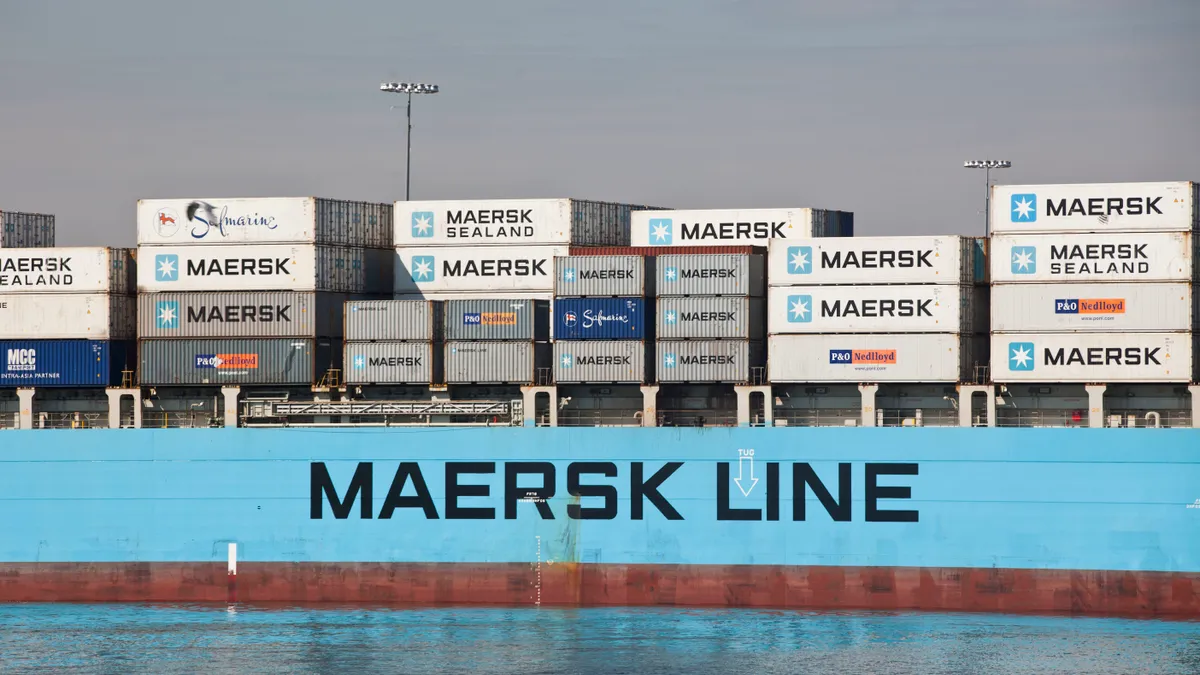Dive Brief:
- A vessel operated by Maersk's 2M partner, MSC, was able to dock at the Jebel Ali Port in Dubai, United Arab Emirates, on Tuesday, after a fire broke out on the ship on March 6, according to a report in The Loadstar.
- The Maersk Honam was in the Arabian Sea en route from Singapore to Suez when a major fire broke out in one of the forward cargo holds. It carried a cargo of 7,860 containers and a crew of 27 — five of whom died in the fire.
- Under the York-Antwerp General Average Rules, all involved parties share the cost of lost cargo.
Dive Insight:
When there’s a disaster at sea, vessel owners, bunker owners, container shell owners and cargo owners all must contribute their fair share to pay for the lost cargo.
Called the York-Antwerp General Average Rules, codified in 1894 and updated several times since, this maritime law includes international agreements, national laws on shipping and private agreements voluntarily adhered to by the parties involved in the shipping contracts. They establish the rights and obligations of the parties when cargo must be jettisoned from a ship, according to The Legal Dictionary.
In the case of the Maersk Honam, the cost will be dear — more than half the value of the cargo. Salvage company Richard Hogg Lindley (RHL) fixed the salvage security at 42.5% of the cargo value, with an additional 11.5% as a general average deposit, according to The Loadstar report.
In other words, the shipper must pay 54% of the cargo value to have the cargo released.
The General Average Rules generally apply to cargo that was lost or badly damaged; however, MSC has said that it will also charge a tariff for extra transport, storage and port costs incurred in Dubai to shippers with undamaged cargo — $750 per 20 feet or $1,250 per 40 feet.
Loss of life and loss of profit. The Maersk Honam fire was a true disaster.












